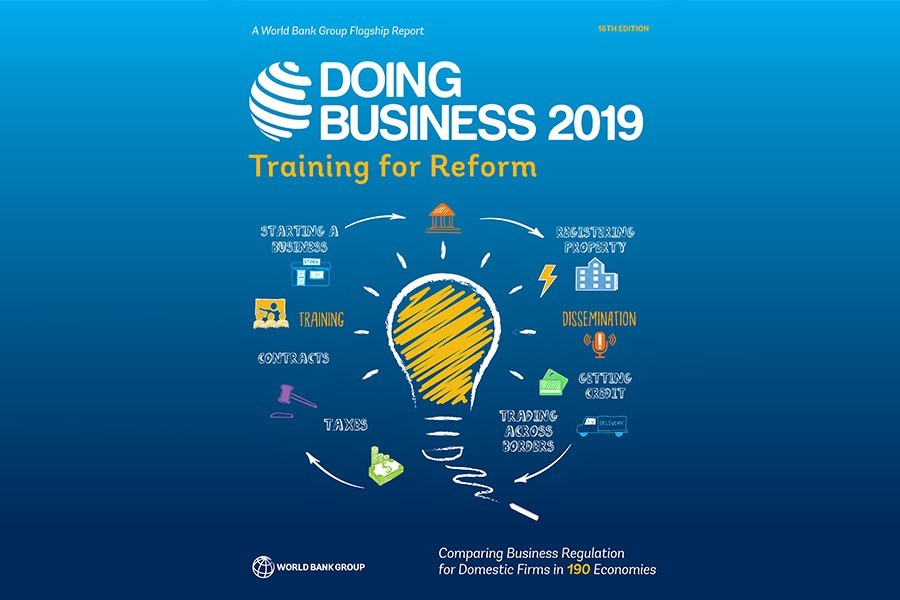Bangladesh's performance in World Bank's Doing Business Index, 2019 delivers an embarrassing but not a discouraging message for us. It will, therefore, be important to wax proactive with readings on the barometer rather than be reactive, as if all hell has broken loose on us!
Surely it is 'shameful' for us, as the finance minister A M A Muhith noted, that Afghanistan is 'far ahead' of Bangladesh in terms of offering ease of doing business. And the negative news doesn't end there; it also hurtful to our sensibilities that we have ranked the lowest in South Asia. Indeed, it is little consolation that we have notched one spot up making it to 176 out of 190 countries.
All this gives us a jolt - one hopes not in passing; yet we exactly know where we have proved deficient on the measuring rod of the World Bank which is uniformly applied to all countries. So we get to know where our weaknesses are on a comparative scale to work on them for an improvement in next annual index. Simultaneously, we must make it a point to build up on the positives that too have been identified in the global appraisal report.
In starting a business, our position has slid to 138th from 131st as of last year. It takes on average 19.5 days to start a business because 'digitalisation of different things are not working properly'. 'Not working properly' is as euphemistic as it is a gross understatement bordering on a mis-statement! It is common knowledge that a number of documents and papers are required to launch a venture but surprisingly in spite of the much-touted availability of online facilities, in most cases, the paper work or movement of files have to take the manual routes. Apart from lack of speedy disposal of the matter at hand, changing hands means paying every step of the way by an investor to clear the hurdles put up to extort money.
Saquib Quoreshi, an independent business consultant, was quoted in this paper as saying, 'underhand dealings and bribes increase the cost of doing business'. More cogently, he has observed, "Rent-seeking at the functional level and difficulties in contract enforcement are the two main reasons behind the dismal ranking."
The finance minister has been candid in an overarching way saying, "Bureaucracy is responsible for this…our bureaucracy is very much powerful. There is no change in their mindset."
Sure enough bureaucracy may not be merely regulatory, it can also be a hindrance to business by way of rendering it uneasy or increasing its costs. Obviously, attitudes die hard, and that's why a reform agenda has never gotten obsolete in spite of the fanfare.
Nevertheless, two doable magical options have not been tried out in a decisive way under the watch of a designated body, Bangladesh Investment Development Authority (BIDA), for instance: First, one-stop service to investors; and secondly, effective facilitation of compliance with procedural requirements online.
Finally, what can incentivise us to scale new heights is the mantra that if a war-ravaged and Taleban-harbouring Afghanistan could climb 16th places in a single year to rank 167th, what stops Bangladesh from carving a much better business niche than it has this time around?


